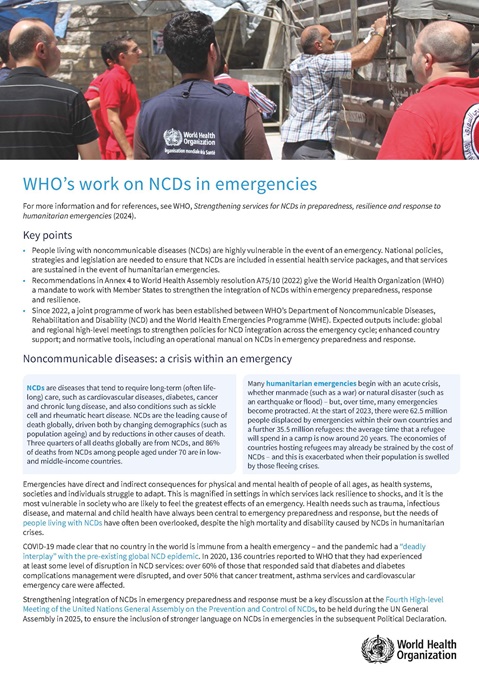WHO's work on NCDs in emergencies

Overview
People living with noncommunicable diseases (NCDs) are highly vulnerable in the event of an emergency. National policies, strategies and legislation are needed to ensure that NCDs are included in essential health service packages, and that services are sustained in the event of humanitarian emergencies.
Recommendations in Annex 4 to World Health Assembly resolution A75/10 (2022) give the World Health Organization (WHO) a mandate to work with Member States to strengthen the integration of NCDs within emergency preparedness, response and resilience.
Since 2022, a joint programme of work has been established between WHO’s Department of Noncommunicable Diseases, Rehabilitation and Disability (NCD) and the World Health Emergencies Programme (WHE). Expected outputs include: global and regional high-level meetings to strengthen policies for NCD integration across the emergency cycle; enhanced country support; and normative tools, including an operational manual on NCDs in emergency preparedness and response.
